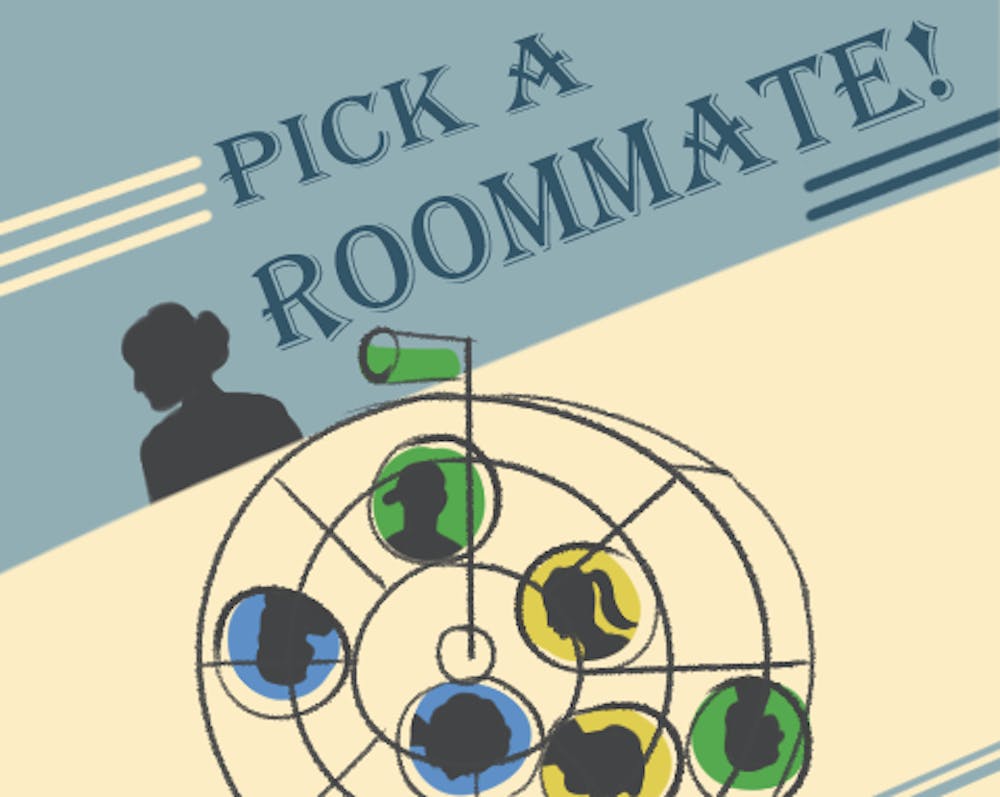When I first started the process of looking for a roommate, there were many things that I was looking for — someone who was neat and tidy, someone who seemed fun to be around and, most importantly, someone who was LGBTQ+ friendly.
This last thing was my biggest criterion for a roommate coming into freshman year. As a queer student, one of the scariest things about having a random roommate was that I would be randomly assigned to someone who would not be accepting of my sexuality and who I was — a common fear among LGBTQ+ students. I was incredibly lucky to find an amazing freshman year roommate, who I got along with and we became close friends.
However, my year was the last year that incoming freshmen had the opportunity to choose their own roommates. In April 2021, Hopkins announced that for the Class of 2026 and beyond, first years would have university-assigned roommates.
Instead of having the option to be randomly assigned to a roommate or searching for one via social media before arriving on campus, all students must now fill out a survey detailing their rooming preferences — including their building of choice, whether or not they plan to study in their dorm and what temperature they prefer to keep their room at. The University then assigns roommate pairs based on these surveys.
Though many may argue that a random roommate assignment is an important aspect of the college experience, this can be uncomfortable and even dangerous for many students, including queer students and students of color as well as students from other marginalized communities.
Fears that a random roommate could potentially be racist or homophobic previously pushed many students to search for their own roommate, but this is no longer an option, leaving many students to arrive on campus scared to meet their roommates for the first time.
Many argue that rooming with a random peer can be beneficial as it forces you to meet new people, step out of your comfort zone and interact with those who think differently from yourself — all likely reasons that the University changed its roommate policy.
However, I would argue that unless they happen to personally know someone attending Hopkins before they set foot on campus, all students will be meeting someone new through their freshman year roommate, regardless of whether they have the opportunity to choose or not.
Outside of a roommate, pretty much everyone you meet when you get to college is going to be new and have different interests, beliefs and backgrounds. This is just the nature of meeting people who you didn’t grow up with. If this is the case, and students are gaining these experiences regardless, why change the roommate policy?
Additionally, college brings enough changes as it is. The majority of students are living away from home for the first time, and many are living far from where they grew up. As a freshman, you often arrive on campus not knowing anyone, with no friends or family to support you.
Why then, would the University choose to make this transition even harder for many students by creating apprehension and fear around roommate assignments? I know when I’ve had a bad day, as I so often did my freshman fall, all I wanted to do was to go back to my room. What are students who don’t get along with their randomly assigned roommates supposed to do then? If their dorms — their home away from home — can’t be a safe place for them, where are they supposed to go?
Living with a person you’ve never met is bound to be difficult regardless of who you are. Hopkins shouldn’t make the adjustment to University life more stressful than it needs to be, particularly for queer students and students of color.
Molly Green is a sophomore from Orange County, Calif. majoring in Writing Seminars.





